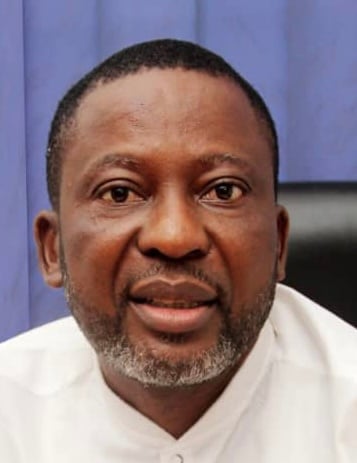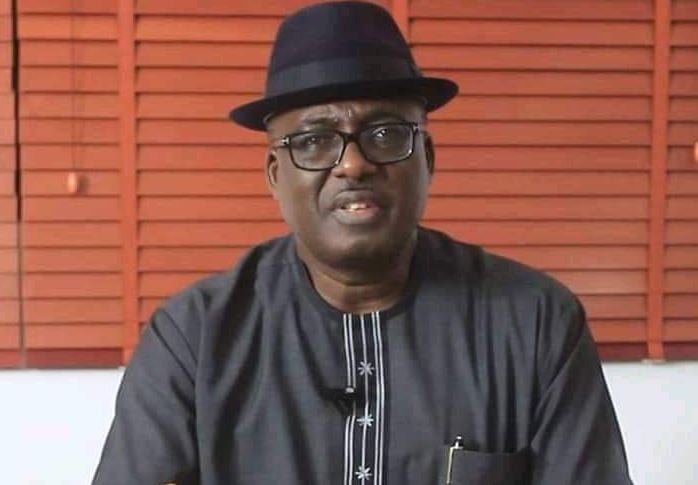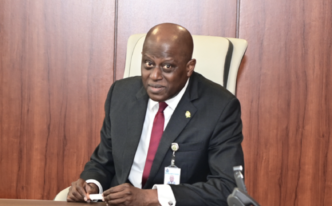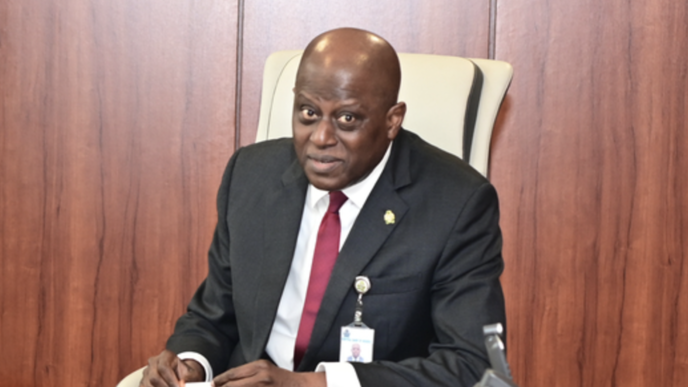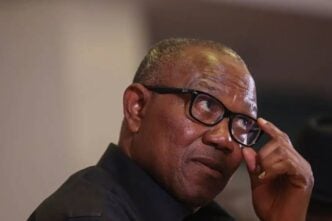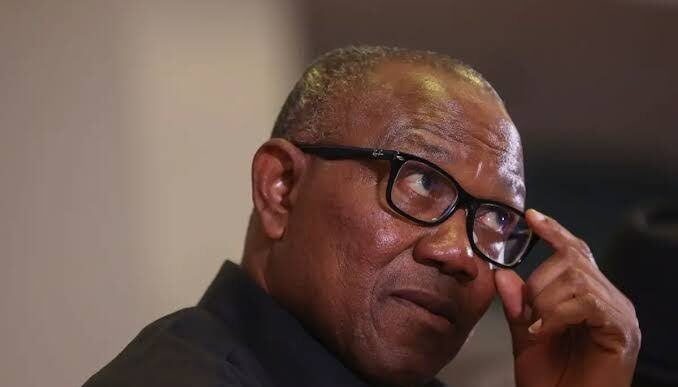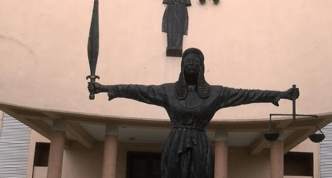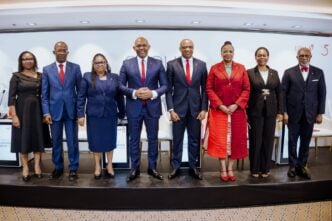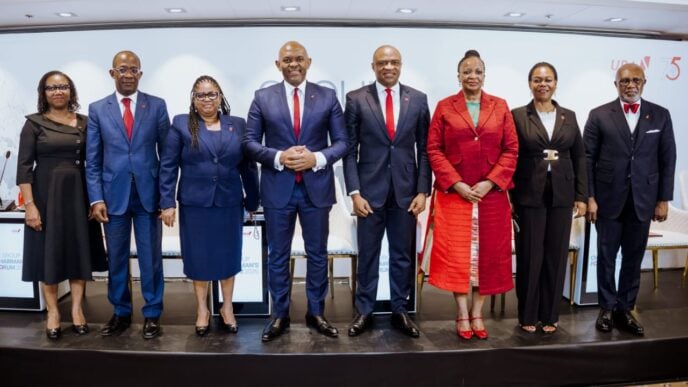Chibudom Nwuche,
In a disheartening turn of events, President Bola Tinubu’s recent submission of nominees for the South-South Development Commission (SSDC) to the National Assembly has left Cross River State reeling from what many perceive as a profound act of political betrayal. The chairmanship slot, widely expected to be secured for Cross River with Professor Sandy Onoh as the nominee, has been reassigned to Rivers State, with Chibudom Nwuche, a former Deputy Speaker of the House of Representatives, named as chairman.
Whispers in political circles point to Governor Bassey Otu as the architect of this loss, accused of blocking a fellow Cross Riverian, Professor Onoh, from the prestigious role in a move that reeks of a self-serving agenda. As a pained Cross Riverian, it is hard to fathom why the governor would deprive the state of such a golden opportunity, leaving many to question whether personal control trumped collective progress.
The South-South Development Commission, tasked with tackling the socio-economic and environmental challenges of the Niger Delta, is a vital institution for the oil-rich South-South zone. The appointment of its leadership is a high-stakes affair, with each state jostling for influence. Cross River State was poised to claim the chairmanship through Professor Sandy Onoh, a respected figure whose nomination promised to elevate the state’s stature.
Shockingly, this opportunity slipped away, and Rivers State emerged with the chairmanship. Cross River, however, retained its standard two slots (as all other states in the region) on the board—an Executive Director position and a Non-Executive Director role—yet the absence of the chairmanship stings as a missed chance for a third and the most prestigious position, Chairman of the board.
Advertisement
Insiders reveal that Governor Otu actively opposed Professor Onoh’s nomination, a decision that ensured the chairmanship was lost to Rivers State. While the governor’s motives remain cloaked in speculation, the move suggests a prioritization of personal influence over the state’s broader interests. Professor Onoh was seen by Governor Otu as an independent figure, perhaps less amenable to the Governor’s direct control.
This perceived power play has sparked outrage among Cross Riverians, who feel their state was robbed of a chance to lead the SSDC, a role that could have driven very transformative projects and amplified Cross River’s voice in regional affairs.
This controversy is not an anomaly but a painful echo of Nigeria’s political history, where leaders have sidelined their states’ interests for personal gain. In the 1970s, during the Second Republic, politicians in the Midwest Region (now Edo and Delta States) were accused of trading key federal appointments for personal favors, leaving their region underrepresented in national institutions. This shortsightedness hindered the Midwest’s development, much like Cross River’s loss of the SSDC chairmanship threatens to do today.
Advertisement
Similarly, in the early 2000s, certain South-West governors during President Olusegun Obasanjo’s administration faced criticism for accepting minor federal roles for their allies while allowing strategic positions, such as ministerial posts, to slip to other regions. These compromises weakened the Yoruba political agenda, which sought greater federal representation after years of marginalization. The most glaring example of betrayal remains the annulment of the June 12, 1993, presidential election, where influential figures allegedly colluded with the military to undermine Moshood Abiola’s mandate for personal benefits, plunging Nigeria into chaos.
The loss of the SSDC chairmanship is a devastating setback for Cross River, a state already wrestling with economic challenges and a waning political influence in the South-South. The chairmanship would have positioned Cross River to shape the commission’s policies, secure funding for critical infrastructure, and restore its regional prominence. Instead, the state is left with its two standard board slots, which pale in comparison to the authority and prestige of the chairmanship.
Critics argue that Governor Otu’s opposition to Professor Onoh reflects a myopic focus on consolidating personal influence rather than advancing Cross River’s collective interests. For many Cross Riverians, the governor’s actions evoke a sense of betrayal, as the state was denied a chance to shine on a regional stage due to what appears to be an ego-driven agenda.
The controversy has also strained ties with Rivers State, which capitalized on Cross River’s internal misstep to secure the chairmanship. Chibudom Nwuche’s appointment is a coup for Rivers, a state already dominant in the South-South due to its economic and political clout. Cross Riverians can only watch as Rivers reaps the benefits of a position that was meant to be theirs.
Advertisement
The SSDC chairmanship saga underscores the perils of political maneuvering and the urgent need for accountability in governance. Governor Otu’s alleged role in blocking Professor Onoh’s nomination raises troubling questions about whether elected officials are truly committed to their states’ welfare. It also highlights the need for transparency in federal appointment processes to prevent states from being shortchanged by internal power struggles.
As the National Assembly prepares to screen President Tinubu’s nominees, Cross Riverians are demanding answers. Many urge the governor to clarify his stance on Professor Onoh’s nomination and take steps to restore the state’s influence in the SSDC. Others call for reforms to ensure citizens have a voice in federal appointments, preventing future betrayals rooted in personal agendas. For a pained Cross Riverian, the hope is that leaders will prioritize the state’s progress over fleeting political victories.
The South-South Development Commission chairmanship controversy is a poignant reminder of how political betrayal can undermine a state’s aspirations. Governor Bassey Otu’s alleged decision to block Professor Sandy Onoh, a fellow Cross Riverian, from the chairmanship echoes historical instances where Nigerian leaders sacrificed their people’s interests for personal gain. The loss of this prestigious role to Rivers State, feels like a wound inflicted by one of our own. As Cross River grapples with this setback, the episode calls on citizens to demand leadership that places the state’s good above all else, breaking the cycle of betrayal that has long haunted Nigeria’s political landscape.
Kalu Okoronkwo, a leadership and good governance advocate writes from Lagos and can be reached via [email protected]
Advertisement
Views expressed by contributors are strictly personal and not of TheCable.
